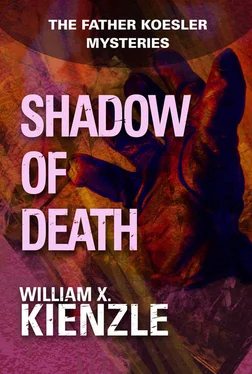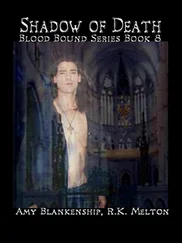“Garvey prophesied, ‘Look to Africa, when a black king is crowned, for the day of deliverance is near.’
“The majority of Jamaican blacks believe that prophecy was fulfilled when an Ethiopian named Ras Tafari was crowned emperor in Ethiopia in 1930. Ras Tafari took the name Haile Selassie. From that moment on, Ethiopia became the longed-for homeland for a majority of Jamaican blacks; Haile Selassie became their savior, and they became, after his given name, Rastafarians.”
The pasta was served.
“Rastafarianism is not a religion or a government or a social order. It is a way of life and it is not understood in precisely the same way by all Rastafarians.
“Jah is God and he is black. The Bible, especially the Old Testament, is their textbook. But it must be appropriately interpreted. For instance, in the Book of Numbers it says,” Toussaint quoted from memory, “‘All the days of the vow of his separation, there shall be no razor come upon his head: until the days be fulfilled, in the which he separated himself unto the Lord, he shall be holy, and shall let the locks of his hair of his head grow.’ All of which justifies the style called . . .” Toussaint paused.
“Dreadlocks,” Koznicki supplied.
“Exactly. Or this from Genesis: And God said, Let the earth bring forth grass, the herb yielding seed, and the fruit tree yielding fruit after his kind, whose seed is in itself, upon the earth; and it was so. And the earth brought forth grass, and herb yielding seed after his kind . . . and God saw that it was good.’ And this Biblical passage legitimates . . .” Toussaint paused again.
“Marijuana,” supplied Koesler.
“Which they call ganja. And which, for them, is a sacrament.
“Their music is reggae. It was made popular by the late Bob Marley. Perhaps you are familiar with it?”
Koesler slowly swallowed some fettucine and shook his head.
“I must admit I was aware of both Mr. Marley and his music,” said Koznicki, “but I have steadfastly avoided both.”
“It does not matter,” said Toussaint, “Reggae is not that germane to our present situation.
“What is of importance is to understand the Rastafarians, how they became what they are, and what their hope and aim is. Essentially, Jah is their black God; Haile Selassie—formerly Ras Tafari—is their savior . . .”
“But Selassie died years ago,” Koesler protested.
“It does not matter. Many Rastafarians refuse to believe he is dead. To others, he has merely preceded them into heaven.
“But to go on with the essential Rastafarian creed: Ethiopia is the homeland; Addis Ababa is Zion; the Western world is Babylon, an enslaving, corrupt, selfish, persecuting society from which the black man must one day escape and return whence he came.
“Ganja they have adopted probably because the weed grows abundantly in Jamaica and also because the narcotic offers some release and escape from the poverty and degradation the black man in exile feels.
“Now, when we come to the way in which each Rastafarian reacts to these beliefs that structure his or her way of life, we find great diversity.”
Toussaint’s chronicle was interrupted by the waiter’s return.
Before Koznicki, he placed a dish containing small sections of chicken which had been crisply fried, then sauced with garlic, rosemary, and white wine.
On a serving cart next to the table, the waiter prepared Koesler’s fish. The mullet lay in a large pan. With a single stroke, the waiter split the large fish and then boned it. After squeezing half a lemon over it, he poured first wine, then the fish’s own juices over its length. It appeared delicious, and it was.
“Most Rasta men,” Toussaint proceeded, and then, as if interrupting himself, “despite the popular and current feminist movement, we might just as well dismiss the Rasta women because the Rasta men have dismissed them: Rasta women are respected, protected, supported, and appreciated; but, if something important is happening, Rasta females will not be there.
“Anyway, as I was saying, most Rasta men are peaceful, at least as long as they are not provoked. There are some, however, who are comfortable with violence. You can find ample evidence of this in your daily papers.
“There were, for example, the twelve Rasta men who kidnapped a young black woman and her son in the Bronx some years back. Rastas executed four of their fellow Rastas in New York City. There have been Rastas wounded and killed in gunfìghts with police. Rastas have been known to traffic in drugs and to commit robberies. So, for a group officially espousing peace and love, some of the Rastas can be and are very violent. And it is, quite evidently, these violent Rastas with whom we must now deal.”
“All of what you have told us is both interesting and informative,” said Koznicki. “But why? Why should even a violent Rastafarian want to attack a Cardinal, a prince of the Catholic Church?”
“That is the fundamental question, is it not?” Toussaint said reflectively.
“Some years ago,” he proceeded, “there was a segment of the popular Sunday evening television program, ‘Sixty Minutes,’ that dealt with the Rastafarians. It opened with a scene of a Rasta man, dreadlocks and all, beating on a small drum and chanting, ‘Death to the Pope! Death to the Pope!’”
“I must have missed that program, although I usually watch the series,” said Koznicki.
“I remember it,” said Koesler, “but I don’t recall the scene you describe, Ramon. I must have missed the opening of that segment. Was any reference made to it later in the program?”
“No, oddly. But it was there in the beginning.”
“But again,” Koznicki touched napkin to his mouth, “why? Why ‘Death to the Pope’?”
“The Rastafarians,” Toussaint replied, “consider the Pope the most powerful and significant figure in Western civilization.”
Koesler smiled. “There are those who would accord that description to the president of the United States, or, perhaps, to the Russian premier.”
“Yes,” said Toussaint, “but neither of them has had the supreme spiritual authority over the great number of centuries that is inherent in the Papacy.
“While the Rastas will grant that, here and there, individual whites may be able to reform and break the chains of their condemnation before Jah, generally they believe that the white race—the oppressor—is in conspiracy with Satan and the Pope, both of whom they equate.”
There followed a relatively long period of silence while Koesler and Koznicki finished their entrees and carefully considered all Toussaint had said.
“All right, then,” said Koznicki at length, “suppose for the sake of argument we say that not all, but certain Rastafarians wish to kill the Pope out of vengeance for all they have had to suffer in those centuries of slavery. Why have they killed Cardinals Claret and Gattari?”
“Bob supplied the answer when he grasped that the connection between the Cardinals was their position as probable papal candidates.
“You see, since the assassination attempts on Pope Leo XIV, the security surrounding the Pope has been intense. And even before this increased security, he was by no means an accessible man. Now, he is, as much as can be said for any public figure, almost beyond physical attack, particularly at close range.
“Since they perceive they cannot successfully assault the reigning Pope, this fanatic minority among the Rastafarians has decided to cut down the prime candidates for the Papacy. That is what I feared when Cardinal Claret was murdered. That is why I went to Toronto—to check with my sources there. What they had learned from infiltrating some Rasta meetings, and what my contacts here in Rome have told me, only reinforce my fears.”
Читать дальше












